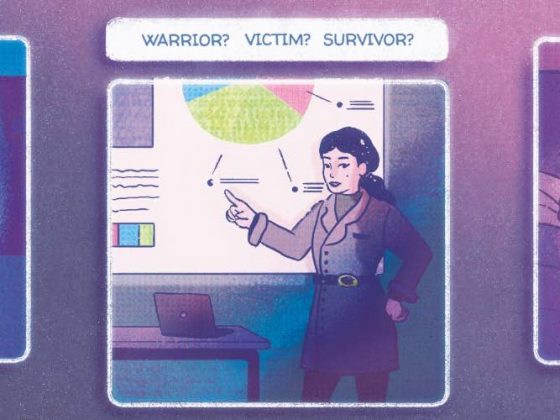Only around one third of people with Lynch syndrome, the most common form of hereditary colorectal cancer, report taking aspirin as chemopreventive therapy. The survey, abstract 19, presented at the 2024 ASCO Gastrointestinal Cancers Symposium, held January 18–20, in San Francisco, found poor uptake was associated with perceptions of inconvenience, side effects and low preventive benefit.
“Even in this high-risk population, engagement in a chemoprevention choice that we know has been proven in a trial to be beneficial was not great,” says senior study author Michael Hall, Director of the Gastrointestinal Risk Assessment Program at Fox Chase Medical Center, Philadelphia, Pennsylvania. “We need to not only think about exciting new interventions, but about whether or not they are approachable for patients.”
People with Lynch syndrome, also known as hereditary nonpolyposis colorectal cancer (HNPCC), have an increased lifetime risk of developing colorectal cancer of up to 80%. The gene mutations MLH1, MSH2, MSH6, and PMS2 have been associated with Lynch syndrome. Regular screening with colonoscopy and polypectomy to identify precancerous cells has been the main strategy to detect early colorectal cancer in people with Lynch syndrome. However, interval colorectal cancers (detected in the interval between screenings) can still develop, and adjunctive therapies, such as aspirin and NSAIDs (non-steroidal anti-inflammatory drugs), have been recognised for chemopreventive benefits.
Results of the earlier CAPP2 study, involving 861 people with Lynch syndrome, published in The Lancet in 2011, demonstrated that receiving aspirin (600 mg a day), as opposed to placebo, for at least two years, could help to decrease the risk of developing colorectal cancer by around 60% in this high-risk population. However, despite such compelling data, rates of aspirin use for cancer prevention have remained low. “We had noted anecdotally that patients did not seem to be using aspirin as a chemo preventive,” explains Hall. Understanding why patients are not accessing preventive strategies has become of even greater consequence with the development of FSPVAX, a preventive peptide vaccine designed to recognise multiple mutated proteins frequently found in patients with Lynch syndrome.
In the current PREVENTLynch study, investigators undertook a one-time ‘e-survey’, asking people in the FOX Chase risk registry about perceptions of chemoprevention agents including aspirin, and colonoscopy. The survey was further disseminated by posting it online and promoting it to people diagnosed with Lynch syndrome outside the US through two advocacy websites. Perceived inconvenience, side effects, reassurance, and the likelihood of recommending available and emerging cancer prevention modalities were measured on a 9-point scale (where low=1). Demographics and personal and familial history of cancer were also collected.
The survey was completed by 296 people with Lynch syndrome, with a median age of 53 years, of whom 56.4% had a personal history of cancer. The findings show that colonoscopy was performed every year in 70.7% of respondents from the US and 68.2% from outside the US, and every two to three years in 27.7% of respondents from the US and 27.2% from outside the US. In contrast, aspirin was taken by only 34.1% of the US respondents and 36.4% of the non-US respondents.
Differences between users of chemoprevention (including aspirin and NSAIDs) and non-users included: perceived greater convenience (mean score 1.32 vs 1.90 respectively, P=0.02); lower concern for side effects (2.30 vs 3.61, P=0.0008); and higher perceived preventive reassurance from chemopreventive use (5.68 vs 3.93, P<0.0001). Interestingly, the difference for the perception of convenience was not very different between people who took it and people who did not.
Investigators identified no significant differences among people who did and did not take aspirin based on age (P=0.24); gender (P=0.16); race (P=0.48); whether they had a personal history of cancer (P=0.06); and underlying Lynch syndrome genetic subtypes (MLH1, MSH2, MSH6, PMS2; P=0.49).
In comparison to colonoscopy, FSPVAX was viewed as more convenient, but with higher side effects, and lower perceptions of efficacy (all P<0.001). In comparison to chemoprevention, FSPVAX was viewed as less convenient, with greater concerns about side effects, but as having higher potential preventive efficacy (all P<0.001).
While US patients viewed aspirin as more convenient than non-US patients, and with a lower risk of side effects (P=0.007), they were no more likely to recommend chemoprevention. US patients also perceived more side effects risk from the FSPVAX than non-US patients (P=0.003).
“Patient perceptions of CP [chemo prevention] convenience, side effects and preventive benefits predicted CP uptake whereas factors such as age, sex, geographical location, gene affected and personal history of malignancy did not. This suggests a critical need for education addressing negative perceptions of CP among LS patients to improve CP uptake,” conclude the authors.












